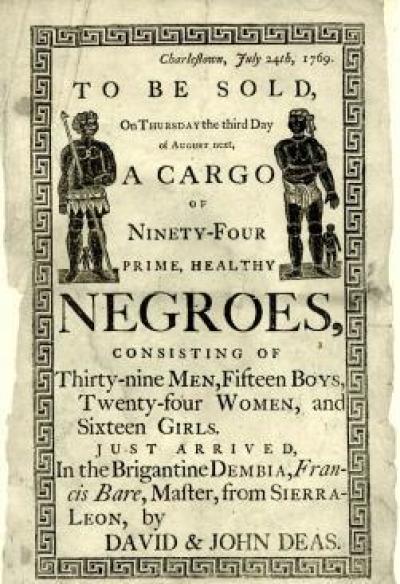Slavery in the United States began 400 years ago.
This month in 1619, Africans were sold as slaves to colonists.
Tragically, our nation which was founded by many God-fearing Christians gave into the ways of the world when it came to embracing the institution of slavery and taking over the new world from the indigenous peoples.
For some people, their rejection of Christianity and the Bible is a direct result of this dark history.
Those who have used the Bible to promote racism or slavery have manipulated the meaning of the Scriptures for their own evil intentions and have not actually looked at the words being written and the context of what was being shared.
The Bible is the most revolutionary book from ancient times which calls for the end of slavery and the end of injustice. The world needs to know this!
So many issues at the heart of the Christian faith have been politicized so that cultural Christians are seen as against immigrants and for white nationalism.
The world around us should know that we are for them as broken as they may be, yet we are against the evils of racism, bigotry, white nationalism, and injustice.
Unfortunately, our silence has been perceived as endorsement. Our unwillingness to acknowledge the evils of our nation's past makes it seem like we are in agreement with injustice continuing.
We are those who are forgiven by Jesus because we were willing to repent so we should be the first willing to repent on behalf of our country because of the evil perpetrated on people who look differently. Consider the prayer of Daniel for his nation in Daniel 9 as he repented on behalf of his nation and those who came before him.
So what does the Bible really say about slavery?
When something doesn’t make sense, we need to look at the context and use the Scriptures to interpret the Scriptures.
So many people throw out all of God’s Word because some of it doesn’t make sense at first glance.
Remember, the historical accounts are descriptive rather than prescriptive. In other words, we are reading what happened not necessarily what God intended or wanted from His people.
In terms of slavery, even though Paul encourages slaves to submit to their masters (and masters to be kind to them), there is something bigger going on.
This seems so backwards to us, but consider a few elements of context.
We have to realize that in the ancient world no one was talking or writing like Paul who was advocating on behalf of women, Gentiles, and slaves. The early house churches bore the fruit of that as they became the most inclusive, diverse, and free communities on the planet!
Slavery mentioned in the New Testament is not like the African slave trade where families were separated, kidnapped, taken hostage on a boat and sent across the ocean to a new world where they knew no one and were mistreated.
Instead, up to 80% of the Roman Empire was enslaved. Slavery is how the economy worked. Scholar N.T. Wright equated the importance of slavery to the economy of the ancient world to the way we depend on electricity today. Slavery is also how most people survived. They needed a place to stay and a job to do and a way to take care of their family.
In those days, slavery had nothing to do with race. You could be a king one day, lose a battle and be enslaved the next day. Many of those enslaved were paying off a debt. They chose servitude as a way to get out of their difficult circumstances. Even in the Old Testament, the Bible calls for those who were enslaved to be freed every 7 years (which is very different than forced slavery).

Comments
Post a Comment